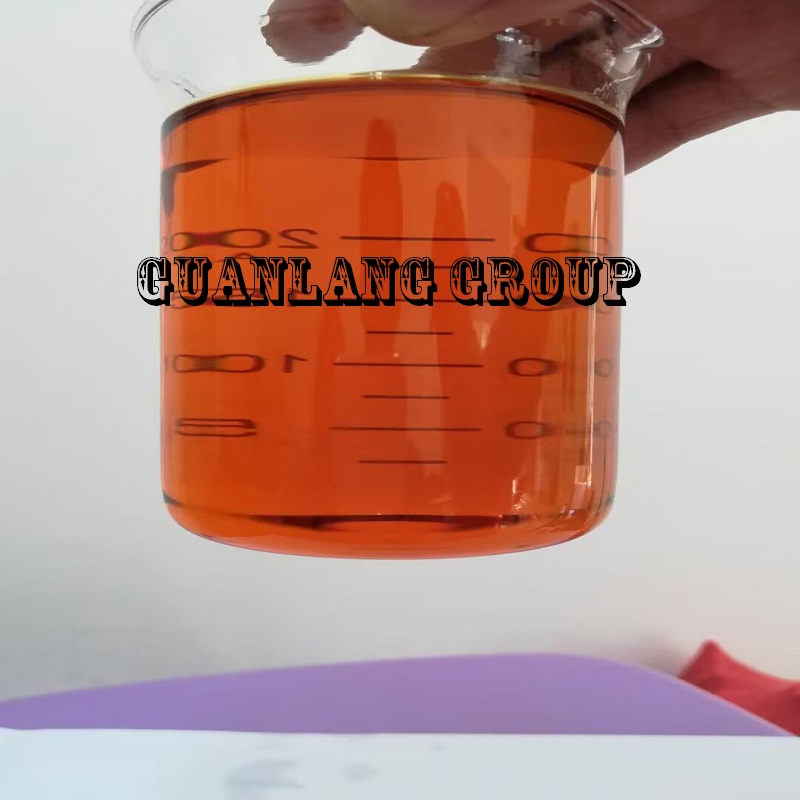Product: Methylcyclopentadienyl Manganese Tricarbonyl ( MMT)
Content: 62%
Appearance: light yellow to reddish brown liquid
Capacity: 2000 tons per year Packing: 200 kg galvanized iron drum, ISO TANK
sample: available
CAS 12108-13-3 Details
Chemical Name: Methylcyclopentadienyl manganese tricarbonyl
CAS No.: 12108-13-3
Molecular formula: C9H7MnO3 5
Molecular weight: 218.09
Appearance: Orange Liquid content: 62%, 98%
Typical characteristics CAS 12108-13-3
CAS 12108-13-3 Application
1. CAS 12108-13-3 can be used as riot control gasoline, gasoline extender, unleaded gasoline antiknock agent, gasoline octane improver, expander, eutrophicator, magnesium metal compound
2. CAS 12108-13-3 is highly flammable and highly toxic, decomposing at the site of a fire into toxic fumes of manganese oxide.
3. CAS 12108-13-3 was originally used as an additive for leaded gasoline and was later used to improve the octane rating of unleaded gasoline.
4. MMT has a simple synthesis process, excellent anti-knock performance, easy to remove combustion deposits, does not block exhaust catalysts, has low toxicity and high environmental safety, and can replace tetraethyl lead as an anti-knock agent. Impact of MMT on the Refinery Industry MMT can provide a cost-effective octane booster for refineries. The use of MMT in unleaded gasoline not only improves refinery blending flexibility, but also provides other positive benefits. MMT is expected to bring the following benefits to the refinery industry: (1) Increased gasoline blending flexibility MMT gives refiners more choice in producing clean fuels, reduces dependence on high-octane components, and increases gasoline blending flexibility. It is profitable for refineries to increase the output of high-grade gasoline. (2) Low octane, lower cost Compared with MTBE, it is an excellent control medium. The increase in octane number at the maximum concentration of MMT by 18 mg Mn/l in gasoline is equivalent to the increase in octane number at a content of 10% MTBE in gasoline. (3) Reducing Reformer Rigidity Since MMT increases the octane number of gasoline, it allows the refinery to operate the reformer under more severe conditions, thereby improving the productivity of the reformer and increasing liquid yield. The octane rating of MON is reduced by about 1%, which can increase liquid recovery by 1%. (4) Reduced Furnace Emissions Reduced Furnace Emissions Lower reformer rigidity reduces fuel demand by about 3% with a corresponding reduction in refinery emissions. (5) Reducing Olefins in Gasoline Benefits In a catalytic cracking unit, measures to reduce olefins in gasoline and increase diesel yield can reduce the octane number. The cost of reducing the octane number of gasoline depends on the compensation of MMT. (6) Reduced demand for crude oil MMT can reduce the degree of crude oil processing in refineries, increase yield and reduce energy consumption, which is beneficial for oil refining. The oil refinery optimizes resource allocation and saves crude oil. The use of MMT reduces the need for crude oil by about 1-2%, depending on the concentration of MMT added. It is estimated that 82,000 barrels of crude oil per day could be saved in the US if all gasoline was treated with MMT. China MMT is estimated to have imported more than 5 million tons of gasoline last year. If MMT is not used, but the same octane number is achieved by technical means, 200,000 tons of crude oil will be consumed.
CAS 12108-13-3 Packing and Transportation
Iron Drum, 200 kg (net) IBC Drum, 1000 kg (net) CAS 12108-13-3 Storage Store in a cool, dry and ventilated place, keep away from sources of fire, do not expose to sunlight rays and cover the container when not in use; MMT Gasoline sampling and storage samples must be packaged in dark brown bottles.
Post time: Mar-29-2023
